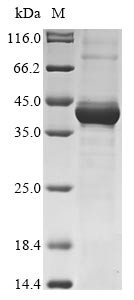Cookie preferences
This website uses cookies, which are necessary for the technical operation of the website and are always set. Other cookies, which increase the comfort when using this website, are used for direct advertising or to facilitate interaction with other websites and social networks, are only set with your consent.
Configuration
Technically required
These cookies are necessary for the basic functions of the shop.
"Allow all cookies" cookie
"Decline all cookies" cookie
CSRF token
Cookie preferences
Currency change
Customer-specific caching
FACT-Finder tracking
Individual prices
Selected shop
Session
Comfort functions
These cookies are used to make the shopping experience even more appealing, for example for the recognition of the visitor.
Note
Show the facebook fanpage in the right blod sidebar
Statistics & Tracking
Affiliate program
Conversion and usertracking via Google Tag Manager
Track device being used

If you have any questions, please use our Contact Form.
You can also order by e-mail: info@biomol.com
Larger quantity required? Request bulk
You can also order by e-mail: info@biomol.com
Larger quantity required? Request bulk
Organism: Homo sapiens (Human). Source: E.coli. Expression Region: 1-340aa. Protein Length:... more
Product information "Maternal embryonic leucine zipper kinase (MELK), partial, human, recombinant"
Organism: Homo sapiens (Human). Source: E.coli. Expression Region: 1-340aa. Protein Length: Partial. Tag Info: N-terminal 10xHis-tagged and C-terminal Myc-tagged. Target Protein Sequence: MKDYDELLKY YELHETIGTG GFAKVKLACH ILTGEMVAIK IMDKNTLGSD LPRIKTEIEA LKNLRHQHIC QLYHVLETAN KIFMVLEYCP GGELFDYIIS QDRLSEEETR VVFRQIVSAV AYVHSQGYAH RDLKPENLLF DEYHKLKLID FGLCAKPKGN KDYHLQTCCG SLAYAAPELI QGKSYLGSEA DVWSMGILLY VLMCGFLPFD DDNVMALYKK IMRGKYDVPK WLSPSSILLL QQMLQVDPKK RISMKNLLNH PWIMQDYNYP VEWQSKNPFI HLDDDCVTEL SVHHRNNRQT MEDLISLWQY DHLTATYLLL LAKKARGKPV RLRLSSFSCG. Purity: Greater than 85% as determined by SDS-PAGE. Endotoxin: Not test. Biological Activity: n/a. Form: Liquid or Lyophilized powder. Buffer: If the delivery form is liquid, the default storage buffer is Tris/PBS-based buffer, 5%-50% glycerol. If the delivery form is lyophilized powder, the buffer before lyophilization is Tris/PBS-based buffer, 6% Trehalose, pH 8.0. Reconstitution: We recommend that this vial be briefly centrifuged prior to opening to bring the contents to the bottom. Please reconstitute protein in deionized sterile water to a concentration of 0.1-1.0 mg/mL.We recommend to add 5-50% of glycerol (final concentration) and aliquot for long-term storage at -20 °C/-80 °C. Our default final concentration of glycerol is 50%. Customers could use it as reference. Storage: The shelf life is related to many factors, storage state, buffer ingredients, storage temperature and the stability of the protein itself. Generally, the shelf life of liquid form is 6 months at -20 °C/-80 °C. The shelf life of lyophilized form is 12 months at -20 °C/-80 °C. Notes: Repeated freezing and thawing is not recommended. Store working aliquots at 4 °C for up to one week. Relevance: Serine/threonine-protein kinase involved in various processes such as cell cycle regulation, self-renewal of stem cells, apoptosis and splicing regulation. Has a broad substrate specificity, phosphorylates BCL2L14, CDC25B, MAP3K5/ASK1 and ZNF622. Acts as an activator of apoptosis by phosphorylating and activating MAP3K5/ASK1. Acts as a regulator of cell cycle, notably by mediating phosphorylation of CDC25B, promoting localization of CDC25B to the centrosome and the spindle poles during mitosis. Plays a key role in cell proliferation and carcinogenesis. Required for proliferation of embryonic and postnatal multipotent neural progenitors. Phosphorylates and inhibits BCL2L14, possibly leading to affect mammary carcinogenesis by mediating inhibition of the pro-apoptotic function of BCL2L14. Also involved in the inhibition of spliceosome assembly during mitosis by phosphorylating ZNF622, thereby contributing to its redirection to the nucleus. May also play a role in primitive hematopoiesis. Reference: "Involvement of maternal embryonic leucine zipper kinase (MELK) in mammary carcinogenesis through interaction with Bcl-G, a pro-apoptotic member of the Bcl-2 family." Lin M.L., Park J.H., Nishidate T., Nakamura Y., Katagiri T. Breast Cancer Res. 9:R17-R17(2007). Function: nan
| Keywords: | MELK, hPK38, hMELK, KIAA0175, EC=2.7.10.2, pEg3 kinase, EC=2.7.11.1, Protein kinase Eg3, Protein kinase PK38, Tyrosine-protein kinase MELK, Maternal embryonic leucine zipper kinase, Recombinant Human Maternal embryonic leucine zipper kinase (MELK), partia |
| Supplier: | Cusabio |
| Supplier-Nr: | EP013692HU1 |
Properties
| Application: | Activity not tested |
| Conjugate: | No |
| Host: | E.coli |
| Species reactivity: | human |
| MW: | 44.3 kD |
| Purity: | >85% (SDS-PAGE) |
Database Information
| KEGG ID : | K08799 | Matching products |
| UniProt ID : | Q14680 | Matching products |
| Gene ID : | GeneID 9833 | Matching products |
Handling & Safety
| Storage: | -20°C |
| Shipping: | +4°C (International: +4°C) |
Caution
Our products are for laboratory research use only: Not for administration to humans!
Our products are for laboratory research use only: Not for administration to humans!
You will get a certificate here
Viewed

